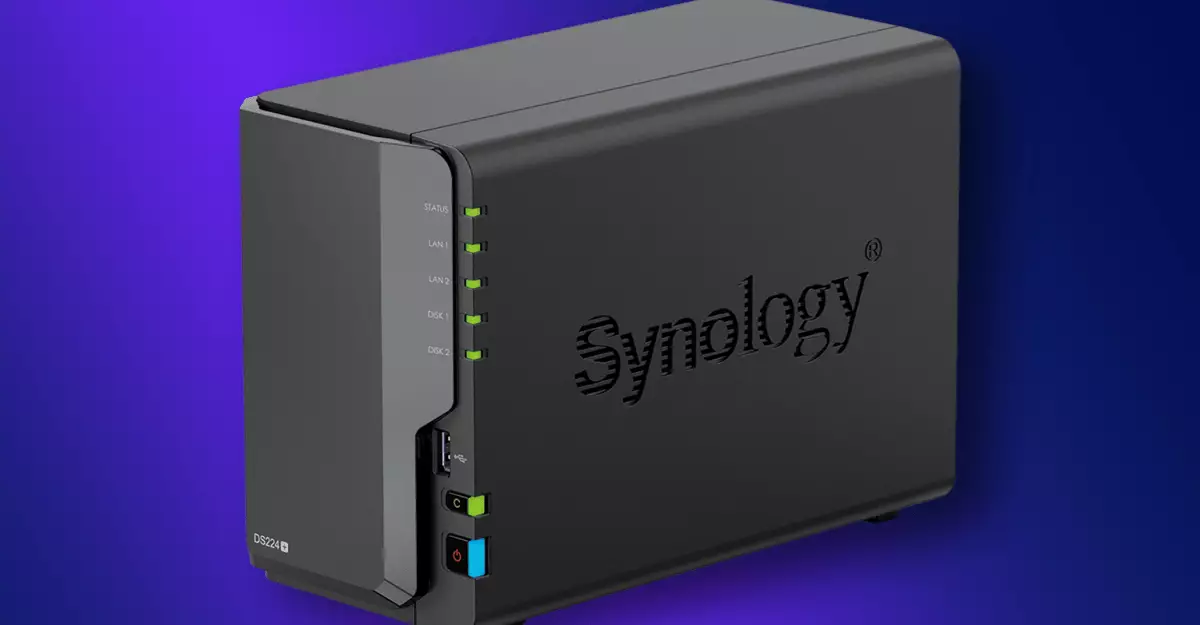In the ever-evolving landscape of technology, decisions made by leading companies can often have a significant impact on consumers. One of the latest moves by Synology, a prominent player in the network-attached storage (NAS) market, has raised eyebrows and sparked discussions across tech circles. The announcement that upcoming Synology models will impose restrictions on the use of third-party hard drives presents a paradigm shift in how users can approach storage solutions. For many tech enthusiasts and everyday users alike, the implications of such changes cannot be overstated.
The Impending Changes Explained
Starting in 2025, Synology’s Plus Series devices will only support Synology-branded drives and those certified by the company itself. This decision is not merely an arbitrary shift but stems from claims of enhanced reliability and performance. Synology argues that extensive testing has demonstrated that certified drives are less prone to failure and compatibility issues. While this claim may hold some merit, the core of the argument rests on a fundamental question: Is prioritizing reliability worth compromising user choice and innovation?
What may appear as a benign enhancement to system performance could translate to a reduction in the flexibility consumers have grown accustomed to in the NAS ecosystem. Such restrictions may hinder individual experimentation and limit the exploration of alternative, potentially cost-effective storage solutions.
The Impact on Consumers
For current Synology NAS owners, the news is less alarming. Existing systems will continue to support a variety of third-party drives, allowing users to capitalize on their investments without immediate concern. However, the anticipated constraints create significant anxiety for prospective buyers. Future users might find themselves navigating a labyrinth of certified options, likely accompanied by inflated prices due to the lack of competition.
This development highlights an essential conundrum in the tech world: do manufacturers prioritize profits over consumer freedom? By narrowing the array of compatible components, Synology positions itself to reap greater financial benefits while potentially alienating a section of the consumer base that values independence and choice.
Examining the Justification
Synology’s rationale for tightening compatibility can be well-understood from a business standpoint. A curated ecosystem fosters greater control over the entire user experience. In today’s world, where data integrity and system reliability are paramount, ensuring that every piece of hardware interacts flawlessly is vital. Furthermore, the rigorous validation process undertaken by Synology to certify drives suggests a meticulous approach to product quality and customer satisfaction.
However, critics may argue that too much control can stifle innovation and drive up costs. The tech community thrives on the diverse, often chaotic, interplay between products. Users frequently innovate with hardware choices, coaxing maximum potential from their devices. Synology’s shift risks reducing this spirit of inventiveness in pursuit of streamlined compatibility.
The Comparison to Other Industries
Interestingly, the scenario echoes practices seen in other technological realms, such as printer manufacturers limiting third-party ink cartridges. Such tactics have historically drawn consumer ire, illuminating the fine line between protecting a brand and alienating loyal customers. In contrast, Synology’s approach appears more calculated and less overtly antagonistic. Therefore, the response from the community may vary; while many might lament the restrictions, others could see it as a necessary evolution in a technology increasingly characterized by complexity and demands for reliability.
Looking Ahead: Implications for the NAS Market
As the NAS market continues to grow, Synology’s decision prompts an essential discussion about future directions. Will similar manufacturers follow suit, or can we expect a counter-movement favoring consumer choice and open compatibility? Only time will reveal the full impact of these forthcoming restrictions on Synology’s market position and customer loyalty.
In the grand scheme, Synology stands at a crossroads: balancing the pursuit of streamlined systems with the necessity of catering to a diverse consumer base. The choices made today will undeniably shape the landscape of NAS technologies for years to come, illustrating the delicate dance between innovation, reliability, and consumer autonomy in an ever-changing tech ecosystem.


Leave a Reply